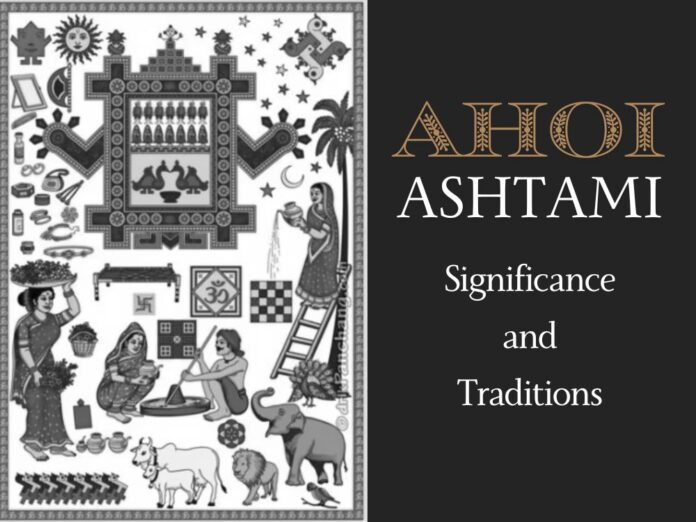New Delhi, October 22, 2024: Ahoi Ashtami, a cherished festival for mothers across India, will be celebrated on October 24th, 2024. This day holds immense cultural and religious significance, as mothers observe a fast for the well-being and long life of their children. Let’s delve into the essence and traditions of this special occasion.
Significance of Ahoi Ashtami
Ahoi Ashtami is observed eight days before Diwali, on the Ashtami (eighth day) of the Krishna Paksha (waning moon) in the Hindu month of Kartik. Traditionally, mothers, especially those with sons, keep a day-long fast to pray for the health and prosperity of their children. Over time, the festival has become more inclusive, with mothers fasting for the well-being of all their children.
The origin of this tradition traces back to a legend where a mother, after accidentally harming a cub while digging, observed a fast to seek forgiveness and ensure the safety of her children. Her prayers were answered, and since then, Ahoi Ashtami has been a day dedicated to maternal love and devotion.
Traditional Rituals and Practices
On Ahoi Ashtami, mothers begin their fast before dawn with a meal called Sargi. Throughout the day, they refrain from consuming food and water, breaking the fast only after sighting the stars in the evening. The fasting ritual, known as nirjala, is one of the most rigorous and signifies deep dedication.
Key rituals include:
- Ahoi Mata Puja: Mothers set up an altar with an image or drawing of Ahoi Mata, adorned with flowers, rice, and grains. Earthen lamps (diyas) are lit, and prayers are offered.
- Depiction of Ahoi Mata: The deity is often illustrated on walls, along with symbols like the cub and moon, symbolizing nature’s nurturing aspects.
- Offerings: Special dishes such as Pua, Halwa, and Poori are prepared and offered to the deity before being shared with family.
- Star Sighting: Unlike most fasts, which conclude with the moonrise, Ahoi Ashtami fast ends after spotting the stars. Mothers offer water to the stars, seeking blessings for their children’s prosperity.
- Storytelling: Reciting the Ahoi Mata Katha (story) is a crucial part of the celebration, emphasizing faith and a mother’s love.
Modern Observance of Ahoi Ashtami
While traditional customs remain strong, urban families have also embraced digital tools to keep the spirit of the festival alive. From online puja guides to virtual storytelling sessions, modern practices ensure that rituals are accessible to everyone, no matter where they are.
This day is not just about seeking blessings; it is a celebration of the enduring bond between a mother and her children. It brings families together, fostering a sense of unity, love, and shared spirituality.
Conclusion
Ahoi Ashtami remains a day of profound spiritual importance, marked by rigorous fasting, heartfelt prayers, and vibrant rituals. It is a beautiful representation of a mother’s dedication, love, and unwavering hope for her children’s bright future. As the festival approaches, it serves as a reminder of the timeless cultural values that bind families together, offering a moment to reflect on the power of maternal love.


